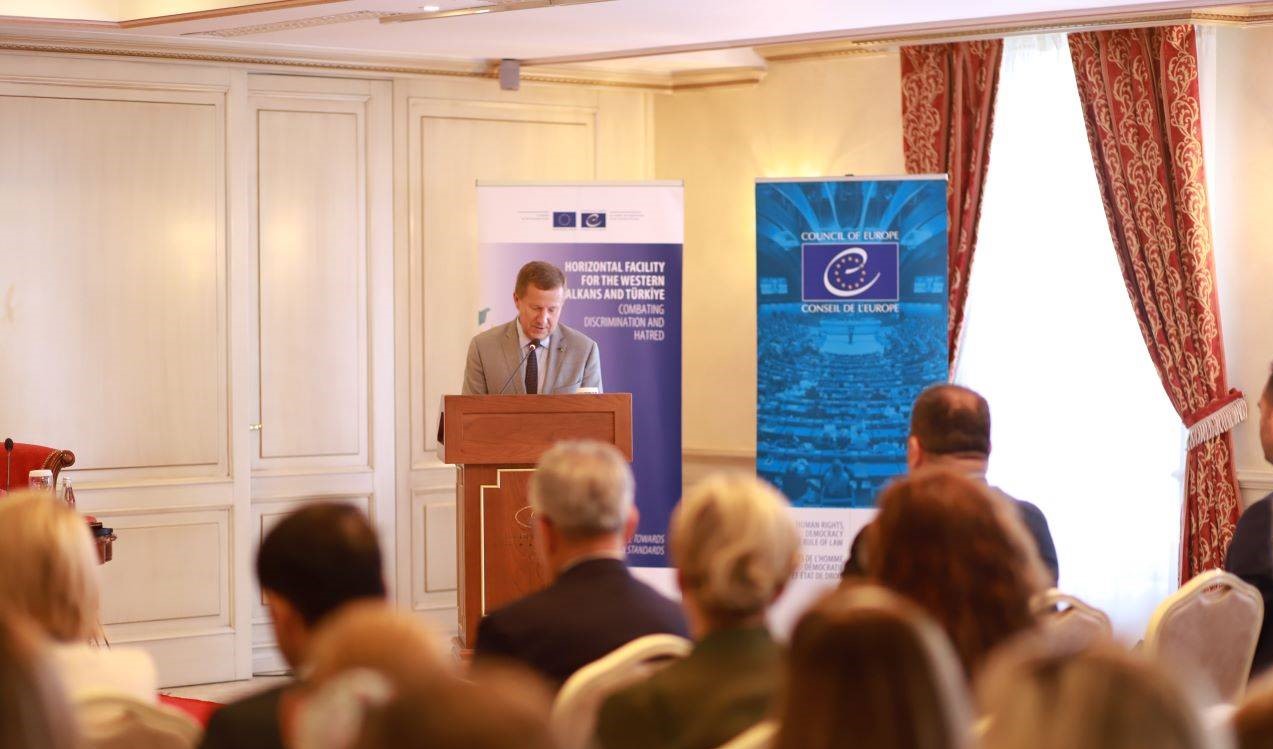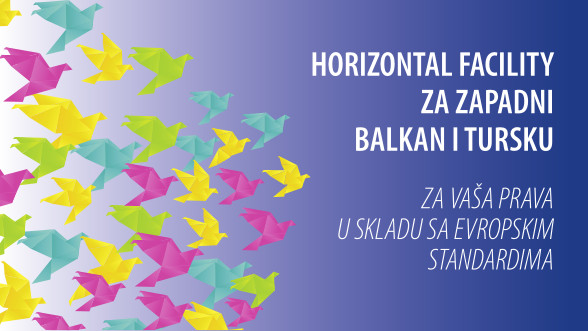The participants in a high-level conference in Pristina have concluded that: “Hate speech is a form of violence, which should have no place in public discourse and addressing it requires a multifaceted approach which involves close co-operation between public authorities, local actors, civil society, and public figures. By working together, we can create safer and more inclusive communities!”
The conference, entitled “Hate speech in the public discourse”, was supported by the European Union and the Council of Europe. It gathered high representatives from public authorities, international organisations, policymakers, activists, and media representatives, who took part in an open discussion on how to tackle hate speech.
“All of us, but public representatives in particular, have a responsibility to stand up against hate speech and positively promote values of inclusion and tolerance”, stressed Frank Power, the Head of the Council of Europe Office in Pristina, opening the conference.
Addressing the participants, the EU Ambassador in Kosovo, Tomáš Szunyog, underscored the significance of this joint initiative and added: “Hatred and intolerance contradict human dignity, freedom, democracy, equality, rule of law, and respect for human rights. They have no place in any society.”
Addressing the conference, Glauk Konjufca, Speaker of the Assembly, underlined the important role that public actors have in the fight against hate speech in public discourse. “Therefore, I want to take this opportunity to call on all the pillars of the state, including the legislative, to jointly establish an appropriate milieu where everyone who is a victim of hate speech can report and receive related treatment ensuring the right institutional attention.”, said Konjufca.
“Freedom of thought and freedom of expression are fundamental human rights guaranteed by the Constitution and we have made progress to guarantee this right. What needs to be done now is to guarantee this right without prejudice to the rights of others, because no one has the right with his or her freedom to limit the freedom of another person”, stated the Ombudsperson Naim Qelaj addressing the plenary.
Martina Valdetara, representing the No Hate Speech and Co-operation Unit of the Council of Europe in Strasbourg, presented the Council of Europe Recommendation on Combating Hate Speech to the participants, which provides a clear definition of hate speech and proposes legal and non-legal measures to prevent and combat it within a human rights framework, including in the online environment.
For her part, Marigona Shabiu, from the ‘Youth Initiative for Human Rights’, observed that: “…as important as it is to promote a democracy in which freedom of expression is respected, it is also important to limit this freedom in cases where hate speech is cultivated, because such language is a threat to democracy and human rights.”
The open debate was followed by two panel discussions on hate speech and its social impact, focusing on education, community engagement, and policy interventions. The participants had the opportunity to exchange and explore concrete strategies for combating hate speech in public discourse, noting that hate speech at the societal level, particularly when targeting minority communities or vulnerable groups, is a clear violation of human rights that should be addressed.
The Conference was organised as part of the initiative "Combating Discrimination and Hatred", implemented within the joint European Union/Council of Europe programme "Horizontal Facility for the Western Balkans and Türkiye”.


